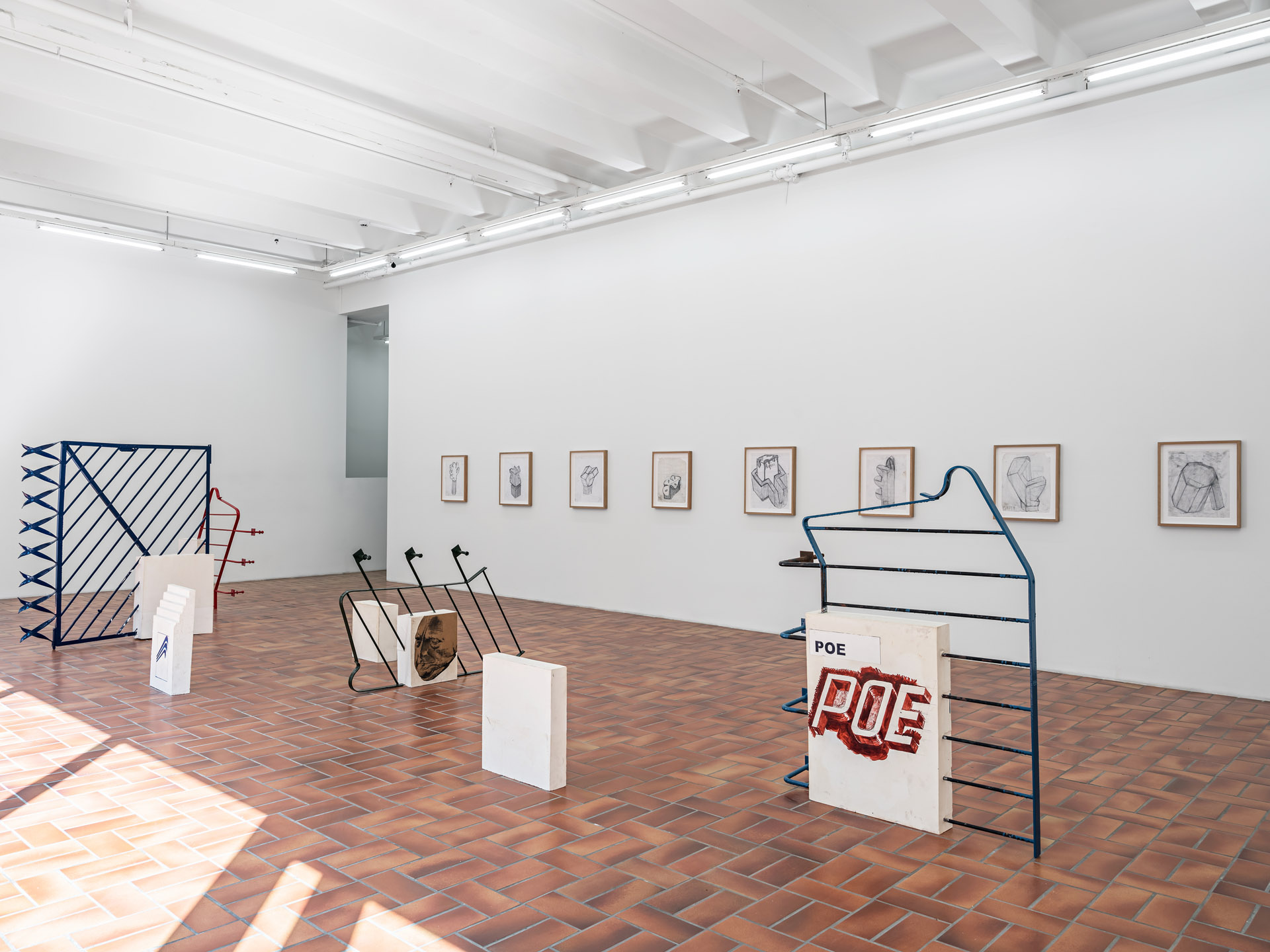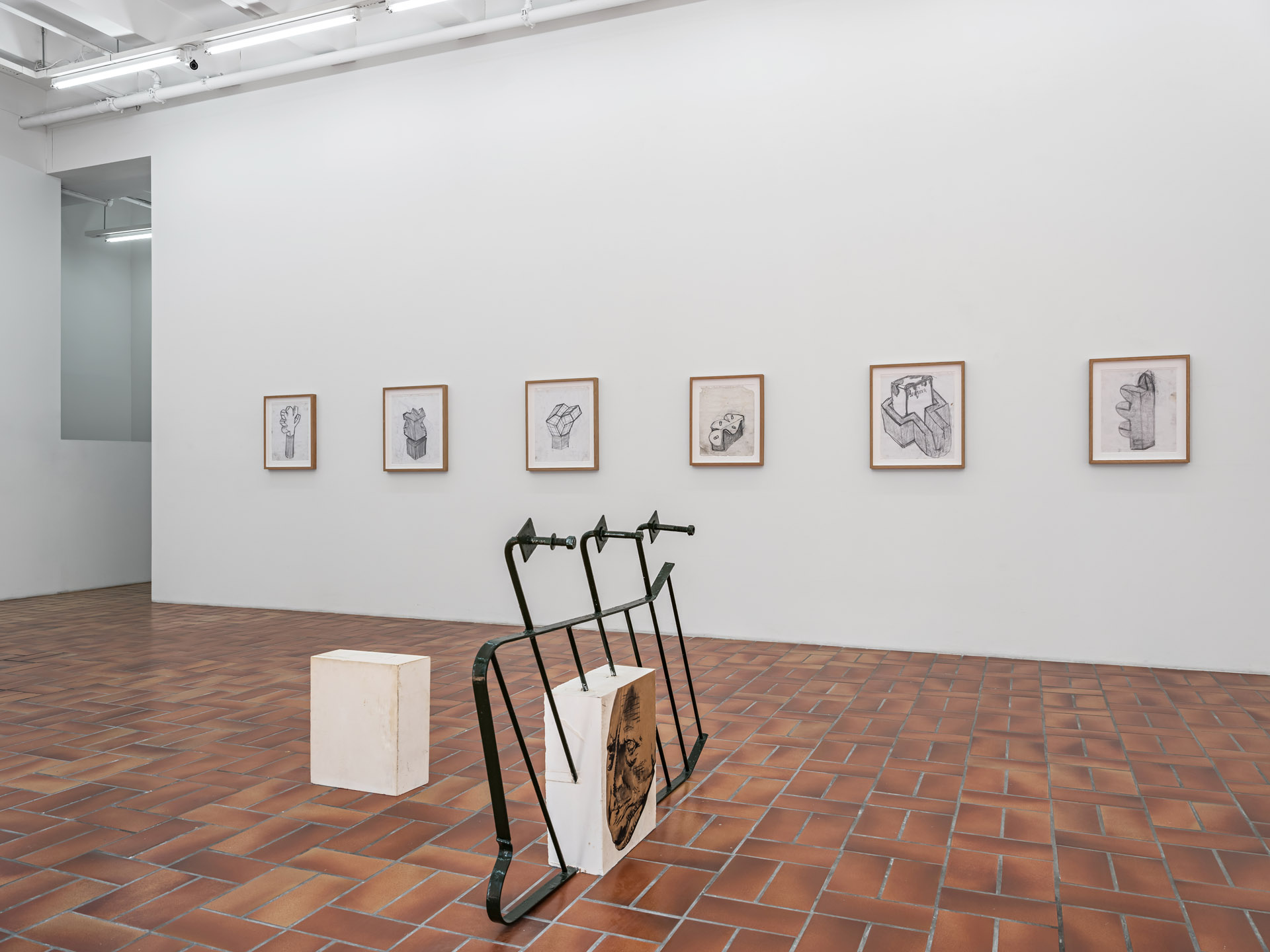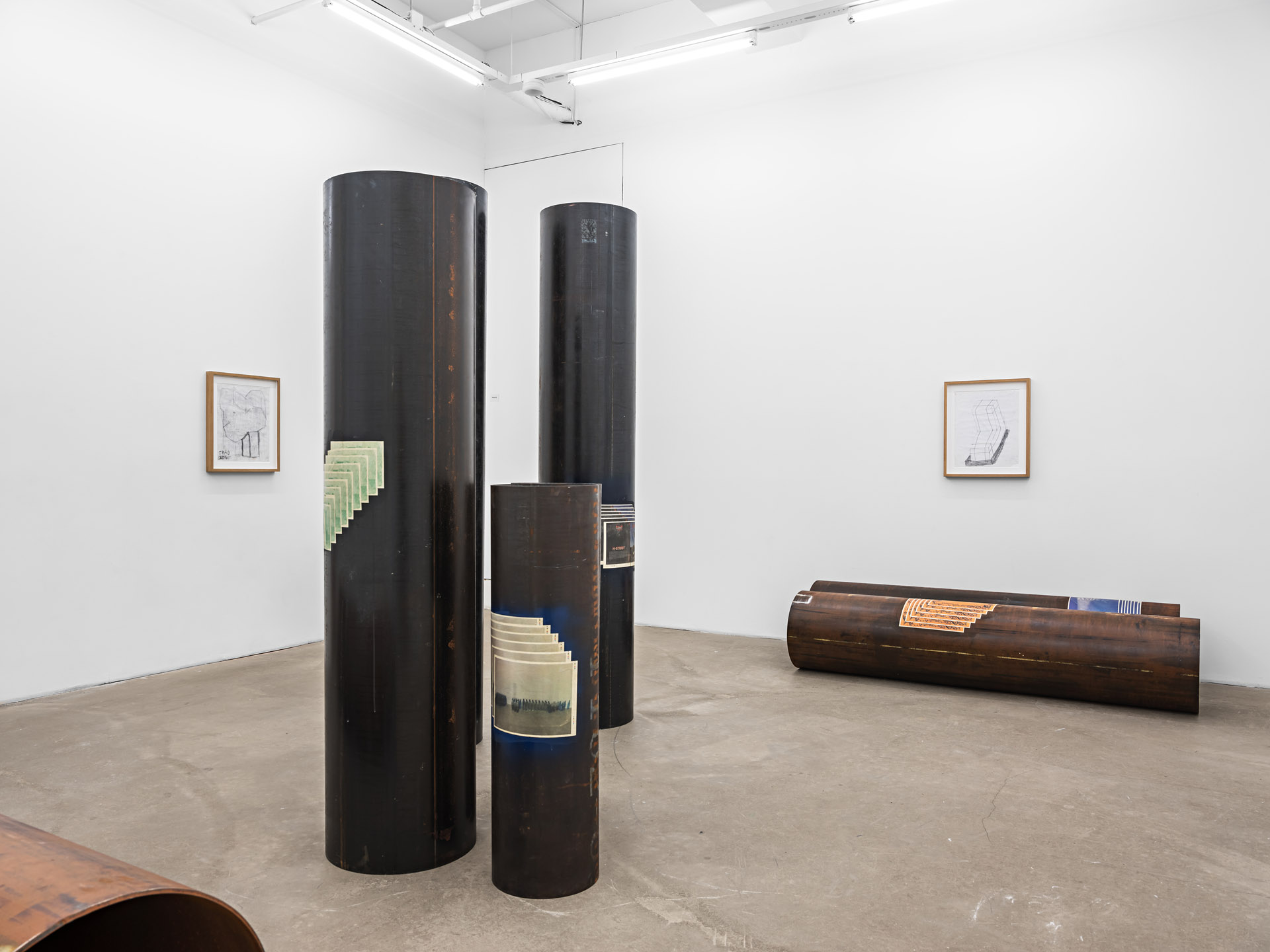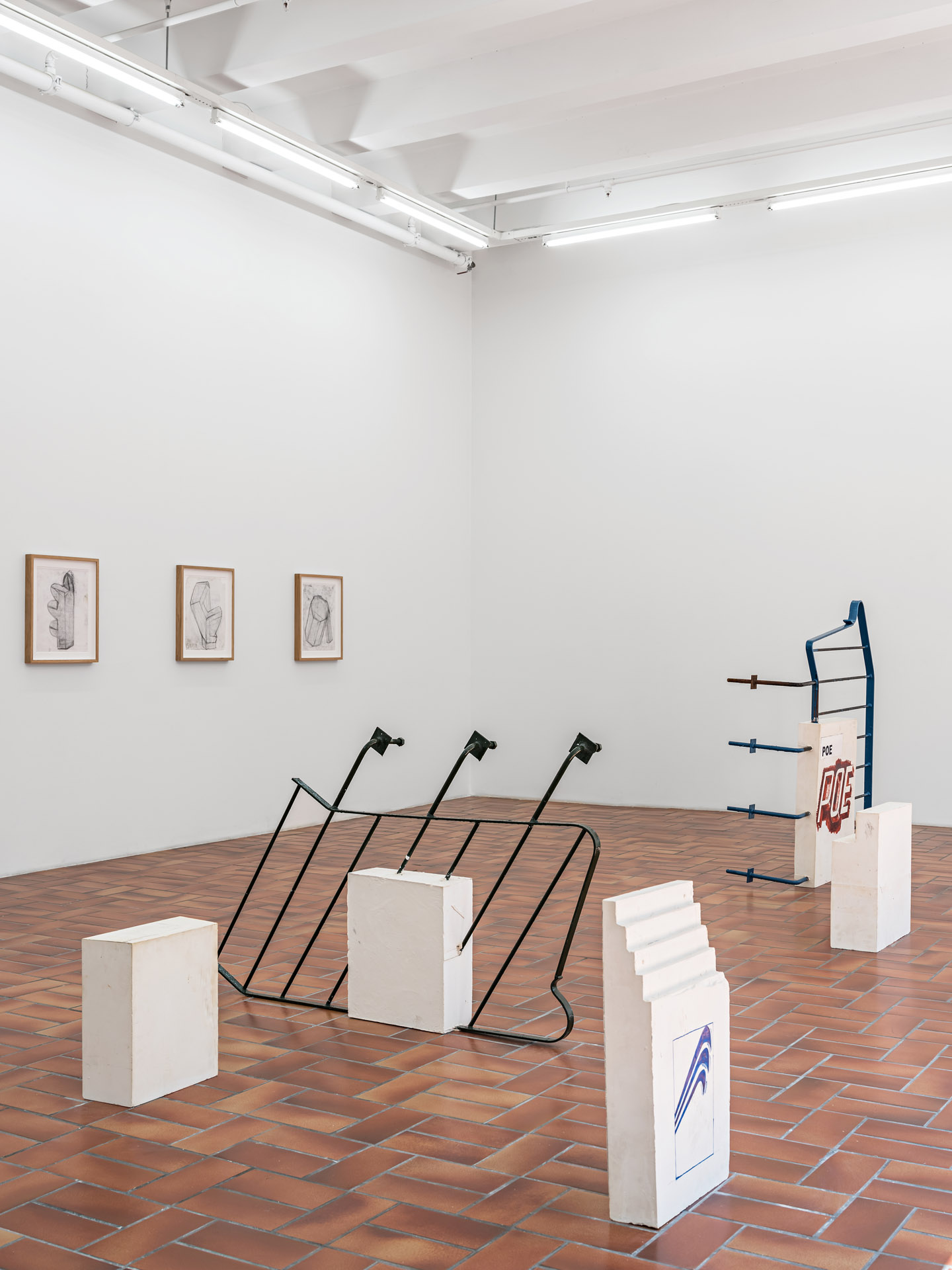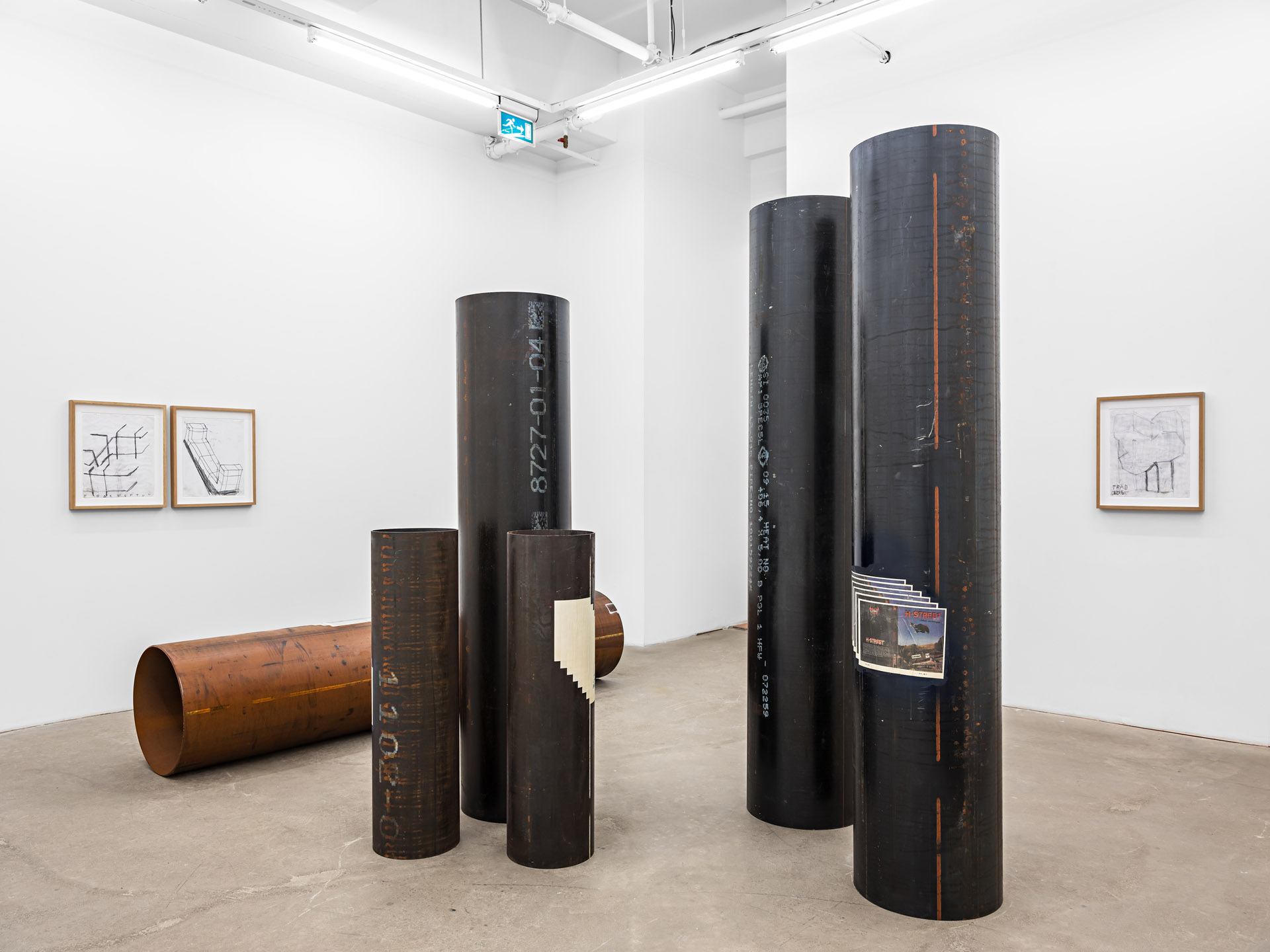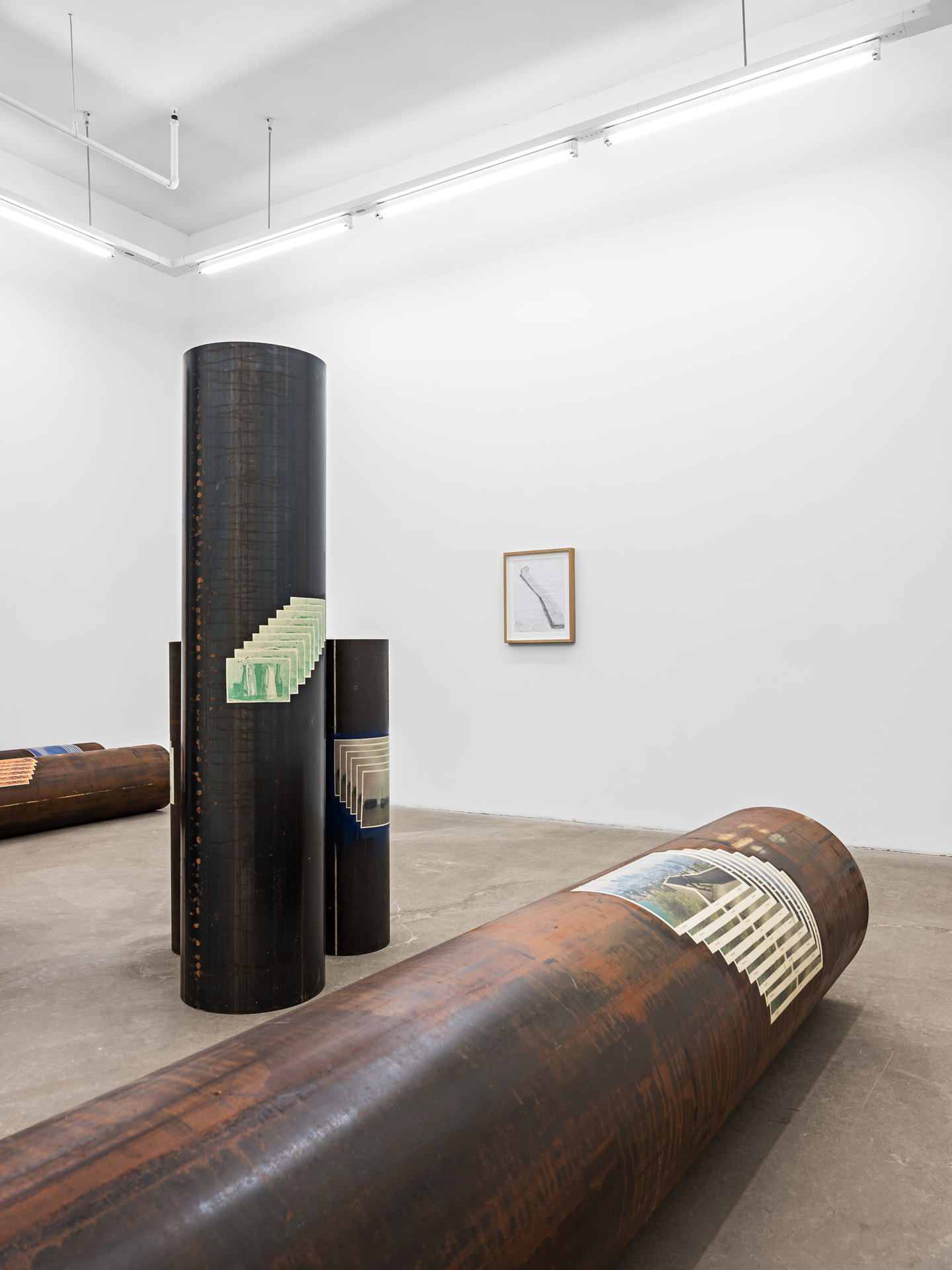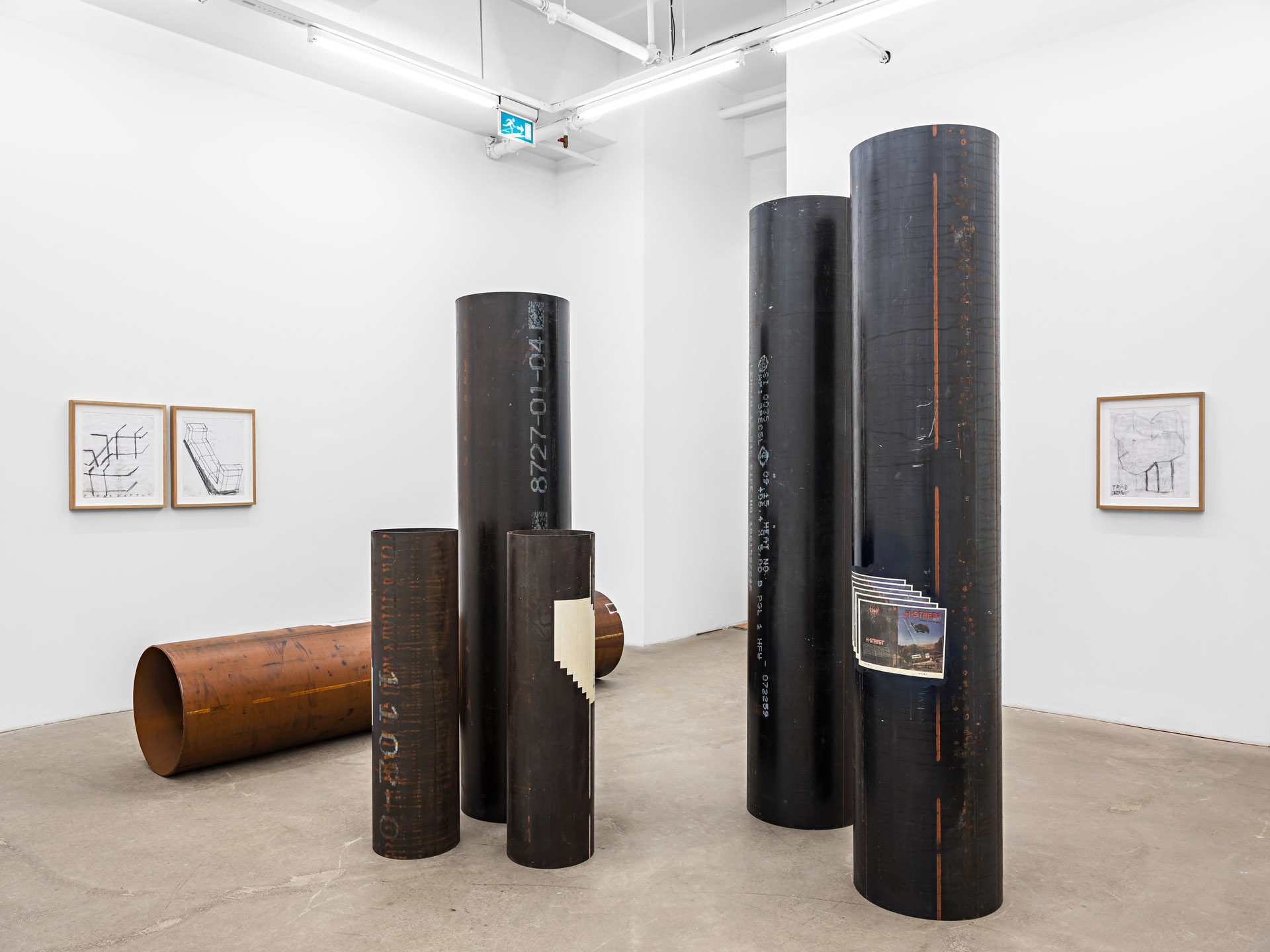SCULPTURE IN THE EXPANDED DAVID COPPERFIELD
If you start from the top they are both uneven; the pencil drawings by Torsten Andersson, where the shreds of paper came into being after the page was torn from the spiral notebook, and the sculptures by Matias Faldbakken, where the plaster is marked by pores and ripples that came into view when the cast of the base was removed. The coarseness on top is unavoidable when an interest in force rests at the bottom for both these artists. The tension, the strain and the stress that is force in itself – force that can suspend stillness and put an object in motion. But more so and more specifcally, the force that can give shape to a sculpture – that can form and deform, disfgure, dislocate and disrupt the notion of the purity of the medium. The drawings by Andersson – rushed, determined and fully confdent – imagining sculptures and wanting to be sculptures as much as images. The sculptures by Faldbakken – clenching together steel, plaster and ink – imagining a screen and wanting to be images as much as sculptures.
Born a mere 50 years apart, the two artists’ interests arrive at this intersection: what is neither sculpture nor drawing, yet both and something entirely else at the same time. Not just uneven to the top but out of whack at its core. Both deeply concerned with fguring out the reality of the material at hand while exploring the fctitious capacity of the imagery they are erecting. The drawings by Andersson rendering simple, austere and stripped down shapes sat on top of pedestals and sat against a pictorial space that is lacking both ground and background. The shapes – sculptures that are exploring variations of the vernacular of geometric abstraction such as cubes, cylinders or grids – are hovering in this void and at the same time being pulled by gravity. Slightly tilted or soon to be toppled, they are out of place and out of balance as they are being weighed down by the led of the pencil and the persistence and density of the mark-making. For years, Andersson would put together models in plywood, then sketch them, then discard the sketches, then sketch them again, and again, and again, then discard even more, before fnally (at some point) distill the selection to three or four sketches that could have him continue his work in the form of a painting.
Still fctive, yet this archive of shapes reminds us of how modernism has become our classicism and our archeological feld. Andersson having worked through it and throughout it, commencing these works in the early 1960s. Faldbakken working from it as a foundation and making use of its reservoir and residue, unearthing from the same ground as Andersson and trusting the same handmadedness and manual labour. The understated and unrefned plaster slab providing the base for the sculpture and a grounded marker. From this, two drawings emerge: an ink drawing (either on paper or straight onto the plaster) and a steel handrail stretching out and sketching out shifting spaces as you move around the sculpture. The base now both holding the sculpture in place and hosting the drawing – acting as a screen that is reversing the hierarchy of a conventional composition, but more importantly as a screen both being an image as well as being what stands in front of the image. Or the image standing in front of an image – “The image is a screen which hides what it means”, according to the philosopher Vilém Flusser (1920-1991), whose words Faldbakken frequently returns to.
There is an imaginative dissent at the core of these sculptures and Faldbakken’s overall project; whether the reservoir of shapes he is making use of are derived from a vernacular of abstraction or not, is secondary to a primary attitude seeking to force whatever imagery into abstraction. The images stacked on top of each other, cancelling each other out, other times opening up and at the same folding in (disturbing more than aiding our understanding of these objects), allowing the sculpture to unfold in space only to fatten again. “Terpentine”, it spells across one of Faldbakken’s sculptures. “Stupstock [Pillory]”, it spells across one of Andersson’s drawings. The two forms subjected to a force that is permitting them to stay in place while at the same time dislocating them. This is where the two projects intersect and present us with a dual sense of signifcance: what is striving for archetypes – the primordial or pure forms – and what is striving for prototypes – the frst attempts at indeterminate forms.
Torsten Andersson (1926-2009) grew up in Benarp in the South of Sweden before moving to Stockholm in 1945 to study as an artist. In 1954 he had his debut solo exhibition at the renowned Galerie Blanche in Stockholm and in 1960 he became the youngest professor ever at the Royal Academy of Fine Arts in Stockholm. In 1966 he left this position, left Stockholm and stopped working as an artist for 6 years. He remained and worked in his hometown of Benarp until his death in 2009. During his lifetime Andersson’s works were internationally exhibited as part of the 32nd Venice Biennale in 1964 and the São Paulo Biennial in 1959 and 1983. Among his retrospective exhibitions are Moderna Museet in Stockholm in 1986 and Malmö Konsthall in Malmö in 1987. This exhibition is made possible by the generous collaboration with Galerie Nordenhake (Berlin, Mexico City and Stockholm) as well as the The Torsten Andersson Foundation (Stockholm).
Matias Faldbakken (b. 1973, Hobro) is a Norwegian artist and published author. He received his education from The Art Academy in Bergen, Norway, and Städelschule in Frankfurt am Main, Germany. Previous solo exhibitions include the Astrup Fearnley Museum of Modern Art, Oslo; Consortium, Dijon; Wiels, Brussels; Fridericianum, Kassel; Neuer Aachener Kunstverein, Aachen; Ikon Gallery, Birmingham; Kunsthalle St Gallen, St Gallen; The National Museum of Art, Design and Architecture, Oslo. Throughout the course of this exhibition his works can also be seen in “Lorck Schive Kunstpris”, at Trondheim Kunstmuseum, Trondheim.

